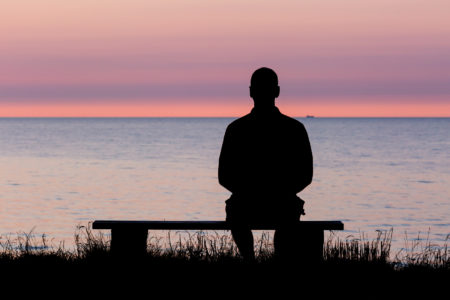How to Cope with Death: 5 Suggestions
June 19, 2018
Categories: Death
My grandmother died last week. It wasn’t tragic or surprising. She was quite old, and her health had been declining for several years. Still, though, I felt sad about her death. There’s a finality about death that can be overwhelming. No more eating Chinese food, listening to Grandma talk to the waiter in Mandarin. No more playing board games as a family. No more asking Grandma questions about her life and adventures as a missionary living in China and Taiwan. No more laughing about how my grandpa asked her to marry him on their first date–and she said yes! As I looked at Grandma lying still in her casket, I realized that chapter was now closed.
Struggling to Cope with Death
Maybe you’re struggling to cope with a death in your own life. Perhaps it’s a situation like my grandma. The person lived a full life, but you’re still sad about the ending and loss. Or maybe it’s a more tragic situation, like the death of a young person. Whatever situation you find yourself in, death can be a challenging journey to navigate. How can you cope with death in a healthy way?
5 Suggestions for Coping with Death
- Take your time. Grief takes time to process. It doesn’t usually get worked through in one day, one week, or even one month. You’re probably going to be sad for a while, and that’s okay. Your sadness is a sign that the person who died meant a great deal to you. It’s normal to feel sadness, pain, and loss after the death of someone you love. Don’t rush through the feelings.
- Express your feelings. Many people try to stuff or bottle up their feelings. Maybe you were told from a young age that “boys don’t cry.” Or you feel embarrassed about expressing your sadness. Whatever the reason, it’s not a good idea to stuff your feelings. Feelings are the body’s natural way of expressing what is in your heart. Feelings have to be expressed to be worked through.
- Grieve together. There is something healing about grieving together with family and friends. Don’t try to cope with death alone. Even if you are struggling, even if you feel like you don’t have anything to say, just be together. Simply being in the presence of people you care about and who care about you can help you grieve and heal.
- Tell stories. One helpful way to work through grief is to tell stories about the person who died. What do you remember about him? What did she mean to you? What did you appreciate most about them? This past weekend, it was healing to sit and listen to my dad and his siblings tell stories about their experiences with Grandma. It was healing to share some of my memories about her. The person who died can live on in your memories and stories.
- Get help. It is normal for people coping with the death of a loved one to feel sadness and grief, sometimes for quite some time. But sometimes people who grieve the death of a loved one can develop depression. There are a few considerations that can help differentiate depression from normal grief. (1) People who struggle with depression usually feel sadness and despair nearly all day, nearly every day (as opposed to normal grief, where the sadness usually comes and goes). (2) People who struggle with depression usually don’t think things will get better in the future. (3) People who struggle with depression usually feel worthless and struggle with low self-esteem. (4) People who struggle with depression usually struggle to complete their normal everyday activities. If you sense that your process of grief might be shifting into depression, it’s a good idea to get help and talk with a mental health professional. They can help you come up with a plan to process your grief, work through your depression, and get back on track.
Discussion: What has been most helpful for you in coping with grief, loss, and the death of a loved one?

Related Thoughts
No Comments
Leave A Comment

Subscribe To My Newsletter
Join my mailing list to receive the latest blog posts.
Receive my e-book “The Mental Health Toolkit” for free when you subscribe.


I’m sorry for your loss. Losing anyone one to death, especially a person you care about and have known a long time, can feel devastating. I agree with your points on how to make it easier. When my grandpa died last summer I talked with my grandma, mom, dad, sisters, aunts, uncles, and cousins about him. We visited the grave for a sense of grounding and non-denial. We looked at pictures. We brought and bring his name up at family get togethers. Those we love are alive in our memories and in the present in our hearts. Take care, Vanessa M.
[…] This was a cry of lament about what was happening to him. Jesus grieved, and it was important. It’s also important for us to grieve when painful things happen in our lives. Don’t rush through your grief. Give your grief the time […]